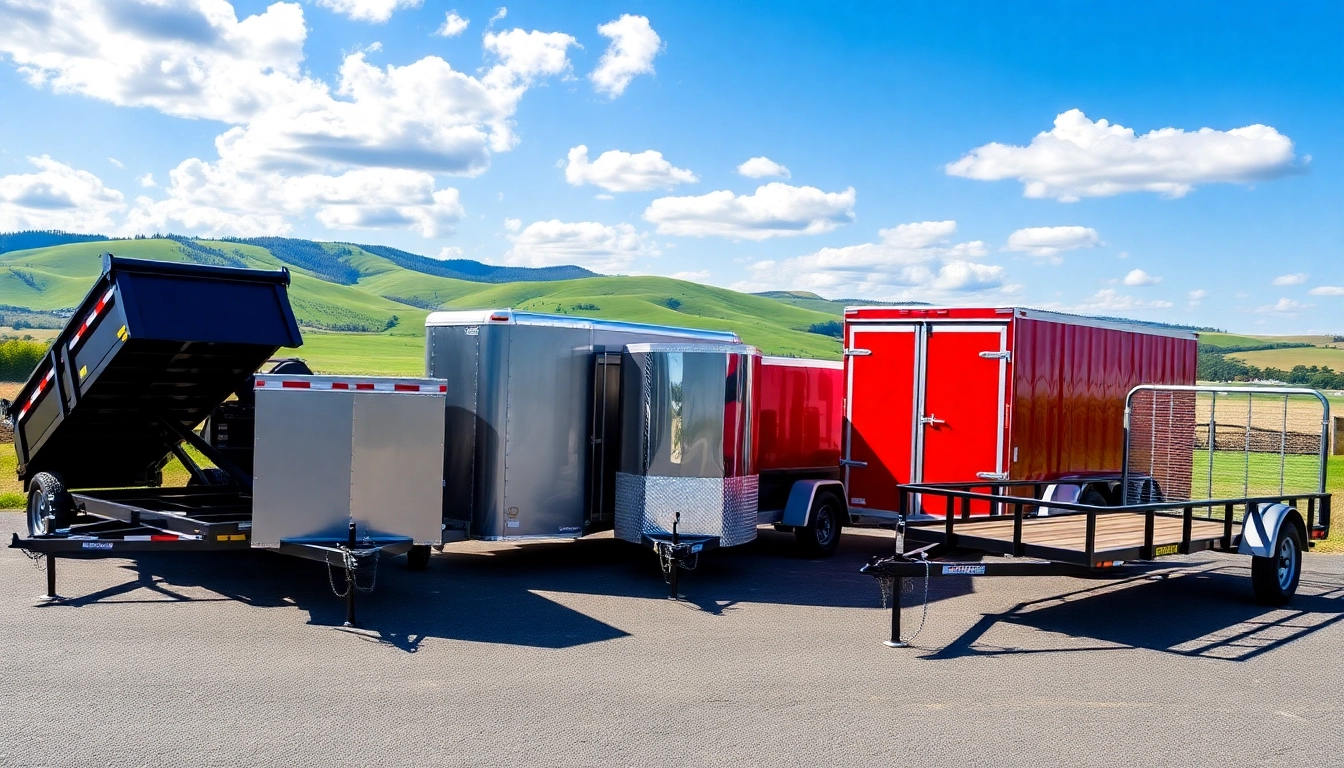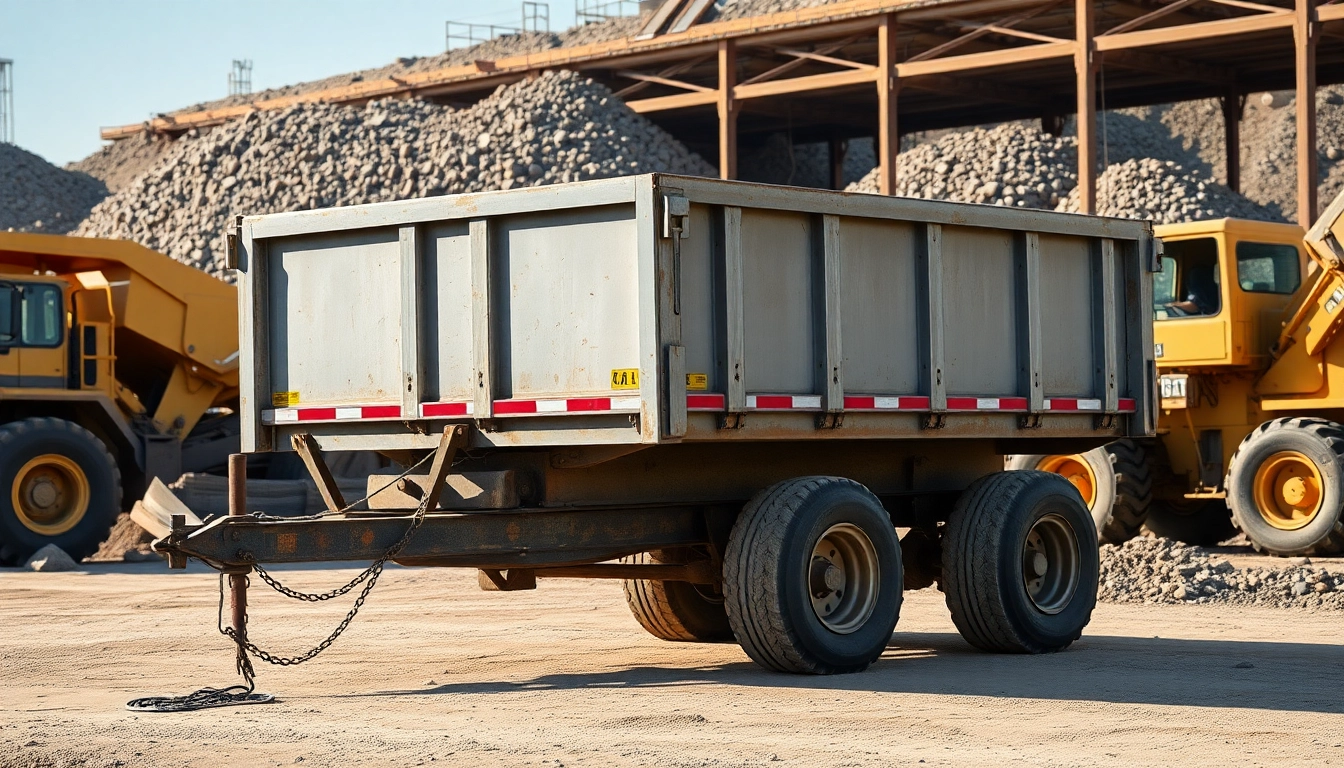Understanding Trailers for Sale in Massachusetts
If you’re in the market for trailers for sale in Massachusetts, understanding the breadth of options available is essential. This vibrant market encompasses various types and styles, catering to different needs, from residential to commercial uses. In this guide, we will delve deep into the types of trailers available, the importance of choosing the right one, current market trends, and how to navigate your purchase effectively.
The Types of Trailers Available
Trailers can be categorized based on numerous factors, including their design, purpose, and the materials they are constructed from. Some common types of trailers include:
- Enclosed Trailers: These provide protection for your cargo against the elements and are often used for transporting valuables or sensitive items.
- Open Trailers: Generally more versatile, these are suitable for transporting large and bulk items, such as vehicles and construction equipment.
- Dump Trailers: Designed to unload materials quickly and efficiently, these trailers are essential in construction and landscaping projects.
- Utility Trailers: These are ideal for transporting tools, equipment, or even recreational vehicles, making them popular among contractors and families alike.
- Lowboy Trailers: These are used for transporting heavy equipment; their low profile allows for taller loads that cannot be hauled on standard trailers.
With such diverse options, understanding the features and specifications of each type will help you select the right trailer for your specific needs.
Why Choosing the Right Trailer Matters
Selecting the appropriate trailer can significantly impact your efficiency and effectiveness, whether you’re using it for business or personal reasons. An ill-suited trailer could lead to:
- Increased Costs: Poor selection can result in increased operational costs, such as wear and tear or the need for additional rentals.
- Safety Hazards: An unsuitable trailer can pose severe safety risks, from improper weight distribution to structural failures.
- Reduced Productivity: Using a trailer that doesn’t meet your requirements can slow down your operations, affecting your overall productivity.
Therefore, a thoughtful approach in choosing a trailer will not only enhance your operations but also add value to your investment.
Market Trends in Massachusetts Trailer Sales
Understanding current market trends can help you make informed decisions about your trailer purchase. In Massachusetts, the trailer market is showing growth and evolving to meet changing demands:
- Increased Popularity of Custom Trailers: Businesses and individuals are increasingly seeking customized solutions tailored to their unique needs.
- Sustainability Movements: There is a growing demand for eco-friendly trailers made from sustainable materials, reflecting a broader trend toward environmental responsibility.
- Technological Innovations: Modern trailers are being equipped with advanced technology, such as GPS tracking and automated loading systems, improving functionality and user experience.
Being aware of these trends can guide your purchasing decisions and help you choose a trailer that is not only suitable but also future-proof.
Criteria for Selecting Trailers for Sale in Massachusetts
When selecting a trailer, various criteria should be considered to ensure that you find the right fit. Below are key factors to evaluate:
Assessing Your Needs and Usage
Understanding your specific needs is the cornerstone of your trailer selection process. Start by assessing:
- Purpose: Determine what you will primarily use the trailer for—be it transporting goods, recreational use, or professional applications.
- Load Capacity: Consider the weight and volume of the items you plan to transport to ensure the trailer can handle your requirements.
- Frequency of Use: More frequent usage might justify investing in a higher-quality trailer, while sporadic needs may allow for more budget-friendly options.
Key Features to Consider
Once you have assessed your needs, focus on the specific features that will best meet those demands:
- Size and Dimensions: Make sure the trailer’s dimensions suit the items you plan to carry while adhering to transportation regulations.
- Material and Build Quality: Look for durable materials that will endure various conditions, especially if you operate in rugged environments.
- Braking and Suspension Systems: Evaluate the braking systems as well as suspension capabilities to ensure safe transport during your journeys.
Budgeting for Your Trailer Purchase
Budgeting accurately is crucial in the trailer buying process. Consider the following:
- Initial Cost: Factor in the price of the trailer itself as well as any additional features or customizations you may require.
- Operating Costs: Account for maintenance, insurance, and any necessary repairs to keep your trailer in working order.
- Financing Options: Explore financing options if upfront cost is a concern, as many dealers offer payment plans or loans.
Buying Process for Trailers for Sale in Massachusetts
Understanding the purchase process can alleviate the stress associated with buying a trailer. Here are steps to follow:
Where to Find Quality Trailers
Finding reputable dealers is crucial. Look for:
- Online Marketplaces: Many dealers list their inventory online, allowing you to compare prices and options conveniently.
- Local Dealerships: Visiting local dealerships can provide hands-on experience, allowing you to inspect the trailer physically.
- Trade Shows and Expos: Attending relevant events can be a great way to discover new models and talk to industry experts.
Navigating the Paperwork and Financing Options
Once you have selected a trailer, ensuring that you have all necessary documentation and financial planning in place is vital. This includes:
- Title and Registration: Make sure to obtain the title and register the trailer in your name, which is essential for legal ownership.
- Financing Documents: If you are financing the purchase, have all relevant documents signed and in order.
- Insurance: Consider insuring your trailer to protect your investment against theft or damage.
Inspecting Trailers Before Purchase
Before making your final decision, conduct a thorough inspection of the trailer:
- Structural Integrity: Check for any signs of rust, damage, or weakness in the trailer structure.
- Tires and Brakes: Inspect tires for wear and make sure the braking system is functioning correctly.
- Overall Functionality: Test any functional features, such as loading ramps, doors, and lights to ensure they are in good shape.
Maintenance and Care for Trailers
Proper maintenance is key to enhancing the longevity and performance of your trailer. Here are essential maintenance practices:
Essential Maintenance Practices
Regularly maintaining your trailer can prevent issues in the long run. Key maintenance practices include:
- Routine Inspections: Conduct frequent checks of the tires, brakes, and overall condition of the trailer.
- Cleaning: Keep the trailer clean, especially after exposure to road salt or other corrosive materials to prevent rust.
- Lubrication: Regularly lubricate moving parts to ensure smooth operation and reduce wear.
Storage Tips for Longevity
How you store your trailer can influence its lifespan. Consider these storage tips:
- Indoor Storage: Whenever possible, store the trailer indoors to protect it from the elements.
- Use a Cover: If outdoor storage is necessary, invest in a high-quality cover to shield it from sunlight and moisture.
- Secure Parking: Ensure that the trailer is parked in a secure location to minimize the risk of theft or vandalism.
Common Repairs & Solutions
Over time, issues may arise that require repair. Common repairs include:
- Tire Replacement: Regular wear and tear may necessitate replacing tires to maintain safety and functionality.
- Brake Repairs: Brake systems require attention; ensure they are regularly tested and maintained.
- Wiring Issues: Electrical systems may experience faults, necessitating inspections and potential rewiring to ensure safety.
The Future of Trailers for Sale in Massachusetts
As the trailer market evolves, several exciting trends and innovations are emerging:
Innovations in Trailer Design
Trailer manufacturers are embracing technology to enhance usability and efficiency. Innovations include:
- Smart Trailers: Equipped with sensors and connectivity features, these trailers can provide real-time data on cargo conditions and locations.
- Modular Designs: Trailers that can be easily configured or adapted for multiple uses are becoming more common, catering to diverse needs.
- Advanced Materials: Lightweight but durable materials are being utilized to enhance performance without compromising strength.
Sustainability Trends in Trailer Manufacturing
Sustainability is becoming a focal point in trailer production. Key initiatives include:
- Eco-Friendly Materials: Manufacturers are exploring recyclable materials to construct trailers, reducing environmental impacts.
- Energy Efficiency: Enhanced designs aimed at improving aerodynamics help reduce fuel consumption when towing.
- Sustainable Practices: Many manufacturers are working towards greener production processes, minimizing waste and emissions.
The Growing Demand for Trailers in Different Industries
The demand for trailers continues to rise across various industries, driven by changing consumer habits and business needs. Notable trends include:
- Construction Sector Growth: An increased need for efficient transport solutions in construction is driving trailer demand.
- Recreational Usage Surge: A growing interest in outdoor activities is boosting demand for trailers designed for recreational purposes, such as camping and boating.
- E-commerce Expansion: With the rise of e-commerce, trailers are becoming essential for logistics and efficient goods transportation.
Understanding these trends can prepare you for future opportunities and challenges in the trailer market.



